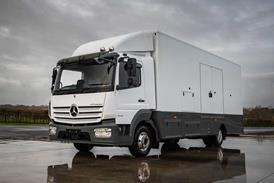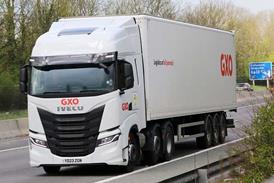Ensure free movement of trucks between the EU and UK after Brexit or face "significant disruption" to the economy, the logistics industry warned this week, following a government shift towards a hard Brexit.
The calls from both FTA and RHA follow signs that the government is hardening its approach to Brexit and comments from Chancellor Sajid Javid that industry has had enough time to prepare.
FTA policy director Elizabeth de Jong challenged his claims, saying the government had yet to answer “critical questions” about the UK’s future trading arrangements with the EU post-Brexit.
She added: “FTA has already been in contact with the new administration with a list of vital questions that urgently need answering, so that the planning and testing of new trade procedures can begin.
“These cover issues including the exact processes and types of formalities required for goods moving across the borders, and the new systems, accreditation and training needed to make this happen successfully.
“While changes in the way borders operate and export and import formalities are to be expected, FTA is calling on the government to prioritise the smooth flow of goods and seek to minimise frictions, red tape and costs logistics companies may face under a new agreement."
Read more
- Asset Alliance continues to grow its truck contract and leasing fleet despite Brexit uncertainty
- Brexit is in road transport’s best interests, insists Europa MD Andrew Baxter
- SDC Trailers blames planned job cuts on Brexit uncertainty and falling sales
The RHA called for the government to sign a ‘Market Access Agreement’ with the EU to allow UK hauliers to continue to travel to, through and from the EU without having to apply for permits – with reciprocal arrangements for EU hauliers.
In a letter to the prime minister, RHA chief executive Richard Burnett demanded “clear and practical rules around the operation of lorries undertaking international transport” and urged negotiators to agree these quickly.
He warned that failing to meet the needs of haulage “will result in significant disruption across major parts of both UK and EU economies".
He also reiterated the RHA’s offer of expert advice to help develop solutions that ensure road haulage continues to function efficiently after the transition period.
















